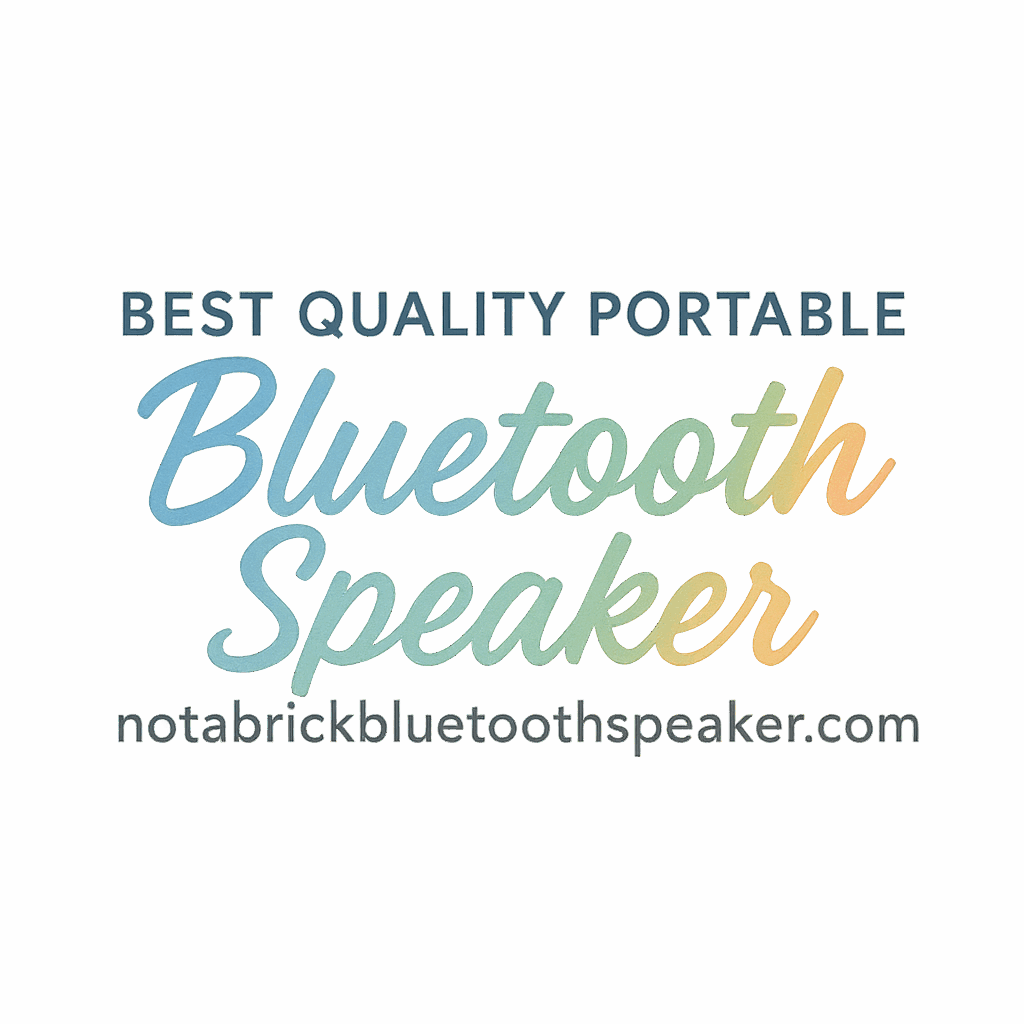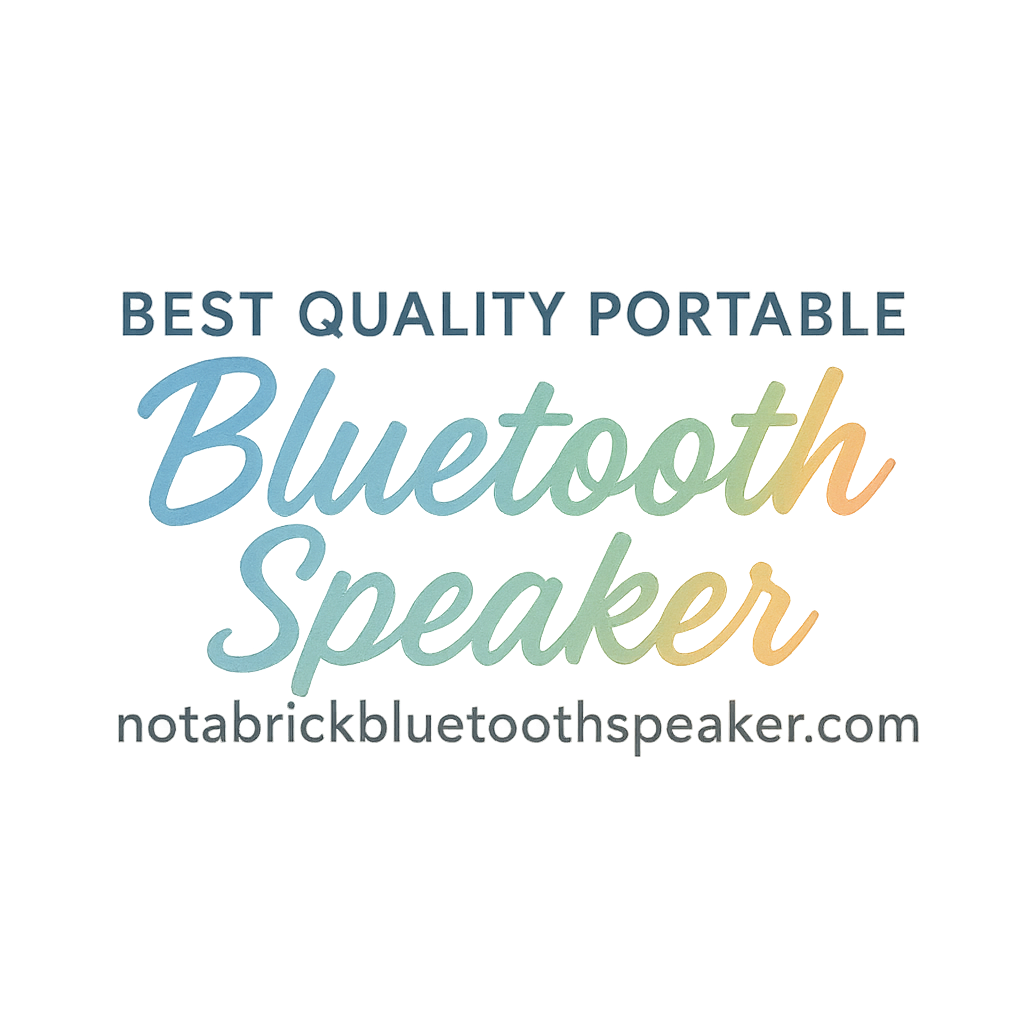Have you ever noticed your Bluetooth speaker suddenly acting weird? Maybe it disconnects randomly or the audio quality just doesn’t feel right anymore. Chances are, your speaker is crying out for a firmware update. Let’s face it—nobody wants to deal with tech issues when they’re trying to jam out to their favorite playlist. But trust me, updating your firmware is like giving your speaker a brain boost!
In this post, we’ll break down 9 different ways to update the firmware on your Bluetooth speaker, step-by-step, in plain English. No tech jargon, no stress—just simple solutions. Ready to upgrade your speaker’s smarts? Let’s get into it!
Why Firmware Updates Matter
Performance Boosts
Firmware updates can do wonders for your speaker’s performance. Think louder sound, faster Bluetooth pairing, and smoother operation. Just like your phone gets faster after a software update, your speaker can too!
Enhanced Compatibility
Got a new phone or smart device? Firmware updates help your speaker stay compatible with the latest gadgets. Without it, you might face issues with pairing or audio streaming.
Bug Fixes and Security Patches
Some updates fix those annoying little bugs that make you want to throw your speaker out the window. Plus, security patches keep your device safe from unwanted snoopers and exploits—especially if your speaker has smart features.
Check out more performance and bug-related insights on our maintenance and troubleshooting hub.
Preparing for a Firmware Update
Before you hit “Update,” a little prep work ensures everything goes smoothly.
Check the Model and Current Firmware Version
Head to the manufacturer’s app or website and find your model. Most speakers let you check the firmware version in their settings or app interface.
Fully Charge Your Speaker
Updating firmware on a half-dead battery is risky business. A sudden shutdown can brick your device. Always make sure your speaker is at 100% or plugged in.
Ensure a Stable Internet Connection
Most updates require downloading files from the internet. A shaky connection can corrupt the update or leave it incomplete.
9 Ways to Update Firmware on Your Bluetooth Speaker
Now, the part you’ve been waiting for. Let’s explore 9 tried-and-tested ways to update your Bluetooth speaker’s firmware!
1. Manufacturer’s App Method
This is the most common and safest method out there.
Step-by-step Guide
- Download your speaker’s official app (e.g., JBL Portable, Sony Music Center).
- Pair your speaker via Bluetooth.
- Navigate to “Device Settings” or “Firmware.”
- If an update is available, hit “Download” and let it run.
- Keep your phone and speaker close and charged.
👉 Want more info? Check out our full buying guides to see which brands support app-based updates.
2. Bluetooth Over-The-Air (OTA) Updates
Some modern speakers allow OTA firmware updates via Bluetooth. No cables needed.
Simply:
- Keep the speaker powered on.
- Let it auto-connect to the app.
- Approve the update when prompted.
This method is common in portable Bluetooth speaker models with smart integration.
Explore more OTA-compatible models in our features & specs section.
3. USB Firmware Update
If your speaker has a USB port, you can often load firmware files manually.
What You Need
- A PC or Mac
- USB cable
- Official firmware file from the manufacturer’s website
Steps:
- Download the correct firmware.
- Connect your speaker to the computer via USB.
- Run the update tool or drop the file into the speaker’s internal storage.
- Follow on-screen instructions or wait for the update to auto-start.
Check comparison reviews to see which models support USB updating.
4. SD Card Update (for Advanced Models)
Yes, some high-end or rugged outdoor speakers let you update via SD card.
- Download the firmware file and copy it to a formatted SD card.
- Insert the card into your speaker.
- Power it on—many will auto-detect the update.
This method is popular in long-lasting speakers used in fieldwork or rugged environments. More on that in our placement tips.

5. Desktop Software Tools
Brands like Bose and Sony offer PC apps to handle updates.
Steps:
- Install the software (e.g., Bose Updater).
- Connect your speaker.
- The app auto-checks for updates.
- Click update, and you’re good to go!
Use this method for precise control and quick downloads. It’s like firmware updating with training wheels.
6. Via Smartphone File Transfer
Some Android users can transfer firmware files directly to their speaker via file-sharing apps.
How?
- Download the firmware file.
- Use Bluetooth file transfer or an app like Files by Google.
- Follow any speaker-specific prompts to begin updating.
⚠️ Warning: Only use this method if it’s officially supported by your speaker’s brand.
Explore smart file transfer tips in our usage tips & tricks section.
7. Using Companion Devices (Smart Displays & Hubs)
If your speaker is part of a smart home setup (like Google Nest or Alexa), firmware updates may roll out through the hub.
Make sure:
- Your hub is connected to Wi-Fi.
- Your speaker is linked to the hub.
- The firmware update is enabled in the settings.
Learn more about smart integration under our technology tag.
8. Third-Party Tools (Use Caution!)
Advanced users sometimes use third-party flashing tools for unsupported devices.
⚠️ This is risky. You could void your warranty or brick your speaker. Only do this if:
- You know what you’re doing
- The tool is well-reviewed
- You’ve backed up your data
For brand-specific third-party tricks, explore our alternatives tag.
9. Visit a Service Center
Sometimes the safest bet is to let the pros handle it.
If you’re unsure about any method—or the update fails—head to an authorized service center. They’ll update the firmware and check for hardware issues too.
Visit our care section to keep your speaker in top shape post-update.
Troubleshooting Firmware Update Issues
Common Errors and Fixes
- Update Stuck at 0%? Restart both your phone and speaker.
- App Crashes Mid-Update? Clear the app cache or reinstall.
- No Update Option? Your speaker may already be up to date.
Tips for a Smooth Update
- Don’t multitask with your phone during the update.
- Don’t disconnect Bluetooth or power.
- Always use official sources for downloads.
Check out troubleshoot guides for specific issues.
How Often Should You Update Firmware?
Every 3-6 months is a good rule of thumb. You don’t have to obsess over it, but check the app or website now and then.
Pro tip: Subscribe to your speaker brand’s email alerts. They usually send out update notices automatically.
Final Thoughts
Updating your Bluetooth speaker’s firmware doesn’t have to feel like defusing a bomb. Whether you’re going through the app, using USB, or dropping by a service center, there’s a method for everyone. Keeping your speaker’s firmware up-to-date ensures better sound, improved features, and way fewer headaches. And remember—your favorite tunes deserve a speaker that’s running at its best.
For even more Bluetooth audio content, check out our dedicated pages on Bluetooth speaker tips, audio performance, and JBL-specific fixes.
FAQs
1. What is firmware on a Bluetooth speaker?
Firmware is the internal software that controls your speaker’s hardware and functions. Think of it as your speaker’s operating system.
2. Can I use any app to update firmware?
Nope! Only use the official app provided by your speaker’s brand for safe and secure updates.
3. What happens if the firmware update fails?
If interrupted, your speaker may become unresponsive. Try a factory reset or visit a service center.
4. Do firmware updates erase my speaker’s settings?
Usually not. However, it’s good practice to note your custom EQ settings just in case.
5. Can old firmware cause connection problems?
Absolutely! Outdated firmware is a common culprit behind Bluetooth pairing and sound issues.
6. How long does a firmware update take?
Most updates finish in 5–15 minutes. Longer updates may take up to 30 minutes, depending on the method.
7. Is it necessary to update firmware regularly?
Yes! Regular updates keep your speaker secure, compatible, and high-performing.


